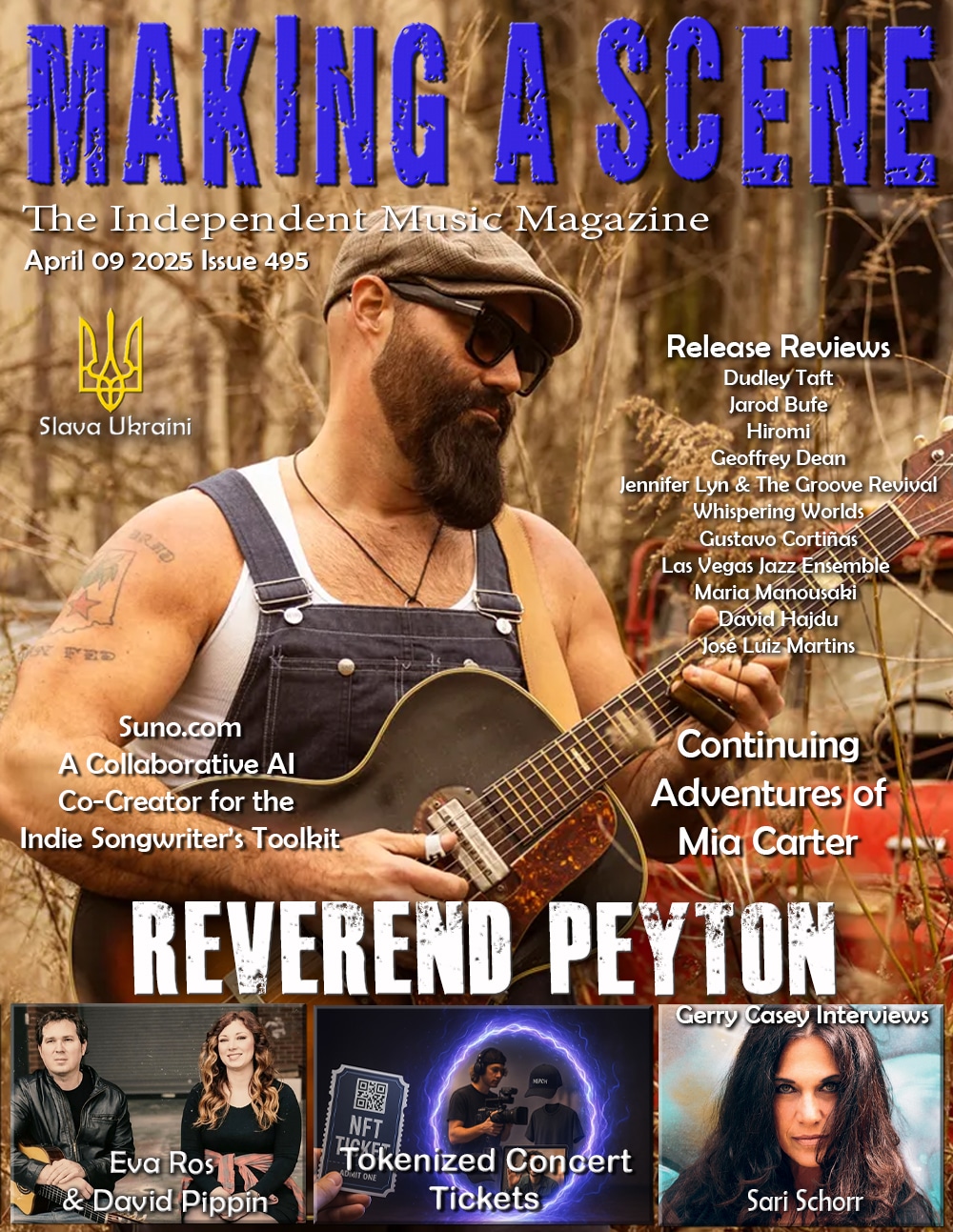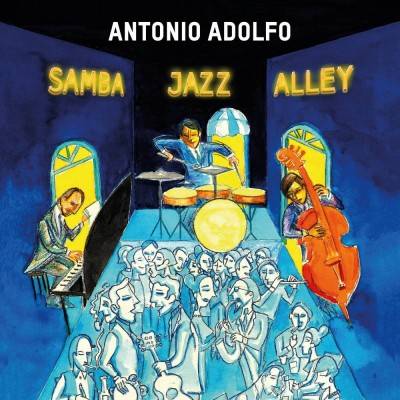Antonio Adolfo Samba Jazz Alley
Antonio Adolfo
Samba Jazz Alley
AAM Music
We’ve brought you plenty of Latin jazz on these pages in the past year, but Antonio Adolfo is one the founders of Brazilian jazz from the early ‘60s, taking the bossa in a slightly different direction with samba, and thus, should not go unnoticed. On Samba Jazz Alley is the latest in a series of albums on his AAM label that have explored variants of Brazilian music
Adolfo was just a teenager in Rio de Janeiro when bossa nova began to take over the airwaves. The pianist decided he did not want to spend the rest of his career backing vocalists, so he and his peers began crafting a more robust rhythmic instrumental interpretation of the bossa that was influenced by U.S. bebop, soul jazz, and West Coast jazz. It became known as samba jazz popularized by Sergio Mendes, Moacir Santos, The Tamba Trio, Elis Regina, Leny Andrade, Raul de Souza, and, of course, Adolfo.
This session references a dead end alley in the heart of Rio’s storied Copacabana that served as the breeding ground for this music. The alley was termed Beco das Garrafas (Bottles Alley) because residents of neighboring apartments would shower the tiny area with beer bottles to protest the early morning racket produced in impromptu jam sessions. Bottles Bar, the main venue, is reputed to have showcased over 100 of Brazil’s most noted musicians and singers. Adolfo recalls performing there with his trio in 1964, saying, “It’s impossible to know ho many tunes that became standards were first performed there.”
Here we have an octet, rounded out with several guests performing Brazilian tunes arranged by Adolfo. These are some of the best Brazilian musicians of his generation, with a three-horn frontline, guitar, bass, drums, and percussion with Adolfo at the piano. The horns especially deliver a robust, punchy sound as Adolfo strives to recreate the feeling of samba jazz when it was first breaking out. He has arrangements of Antonio Carlos Jobim (“Corcovado” and “Passarim”), Johnny Alf (“Ceu E Mar”), Edu Lobo (“Casa Forte”), Baden Powell (“so Por Amor”), Joao Donato (“The Frog’) and tow of his own (“Obrigado and “Hello Herbie, a tribute to Herbie Hancock). Of special note is gorgeous bossa ballad “Tristeza De Nos Dois” (The Sadness of the Two of Us), featuring one of the song’s three composers, the legendary harmonicist Maurico Einhorn, in the company of Gabriel Grossi, Brazil’s current harmonica headliner.
This music flows beautifully and serves as a great introduction to Samba Jazz, for those are new to the form, listen closely and you’ll clearly hear the influence of hard bop and soul jazz from that glorious era of the early ‘60s. In fact, it’s much closer to those sounds, than say the music of Gilberto/Getz and seems a world away from salsa. Solos are crisp and punchy as this is arranged music with improvisation coming in economical bursts, some of the best on Adolfo’s “Obrigado.” It’s fitting that the last two tunes are composed by the most famous of Brazilian composers, Jobim, giving the listener an appreciation for Adolfo’s arrangements on perhaps more familiar material. Whether you think you like Latin jazz or not, you’ll likely be drawn to this recording.
- Jim Hynes
Discover more from Making A Scene!
Subscribe to get the latest posts sent to your email.















































